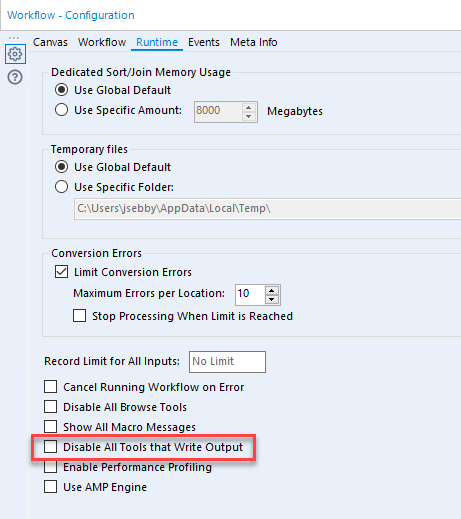Runtime Settings To Make Workflows Run Faster
There have been several occasions when I have thought a particular topic wasn’t important enough to write about. But, some of my simplest posts have been the most popular. That’s the theme for this one. More specifically, I want to draw your attention to a few settings in the Runtime tab that might speed up your workflow or development cycle.
Read More »Runtime Settings To Make Workflows Run Faster




